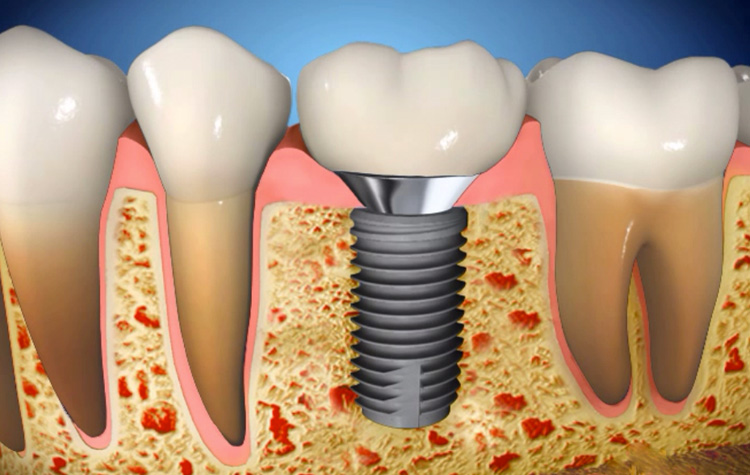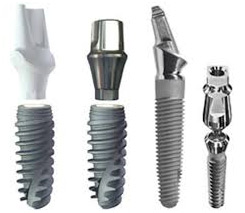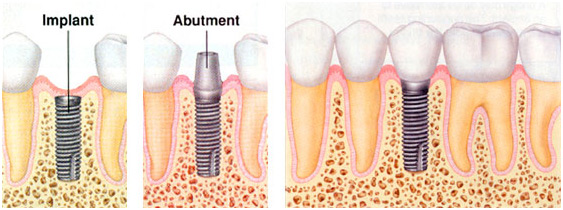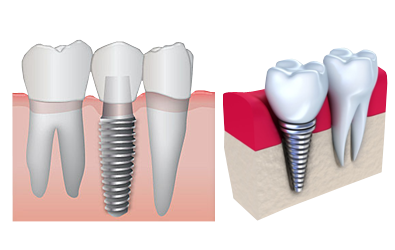Implant placement!

Implant represents a titanium “screw” that is placed in the jawbone and replaces the lost tooth root. After a period of osseointegration or “acceptance” of the body, the implant is placed on the superstructure on which in the final stage comes the tooth. The lack of one or more teeth may have major consequences on the complete line of teeth and jawbone. At the site of the extracted tooth, jawbone very quickly begins to “melt”. Neighboring teeth begin to tilt toward the empty space so that they lose their regular contact with their neighboring teeth. The tooth in the opposite jaw, who was in contact with the “lost tooth” comes from its moorings and begins to “search” tooth support in the opposite jaw. All this leads to loss of proper bite, teeth position, ease of calc, easier caries…
 Implants are the best replacement for a lost tooth. No damage to adjacent healthy teeth, which can sometimes be modified by grinding to set the bridge and prevents bone resorption in the area of the extracted tooth that is no longer stimulates in the process of chewing. In other words, the application of dental implants, restores the function of alveolar bone, and thus prevents atrophy (deterioration) of bone. For patients who have lost all or almost all of their teeth, implants are ideal, which will allow the creation of a fixed work instead of traditional braces that are “kept in a glass.”
Implants are the best replacement for a lost tooth. No damage to adjacent healthy teeth, which can sometimes be modified by grinding to set the bridge and prevents bone resorption in the area of the extracted tooth that is no longer stimulates in the process of chewing. In other words, the application of dental implants, restores the function of alveolar bone, and thus prevents atrophy (deterioration) of bone. For patients who have lost all or almost all of their teeth, implants are ideal, which will allow the creation of a fixed work instead of traditional braces that are “kept in a glass.”
The implants are integrated in over 95% of cases. The period of “acceptance” of the body is from 2 to 4 months, although there are some types of implants that can be loaded immediately. The intervention is performed under local anesthesia and is completely painless. For certain patients sometimes arises the problem of shortage of good bone for implants. In these cases, it can be used an artificial bone, either in the course of the operation, or prior to implant placement.

We should be honest and say that the implants are not always best solution for each patient. Certain diseases, bad habits or the specific situation of the remaining teeth may constitute contraindications of implant placement. Therefore, it is necessary to always, thorough discussion with the dentist of your trust, find the best treatment for your case.
